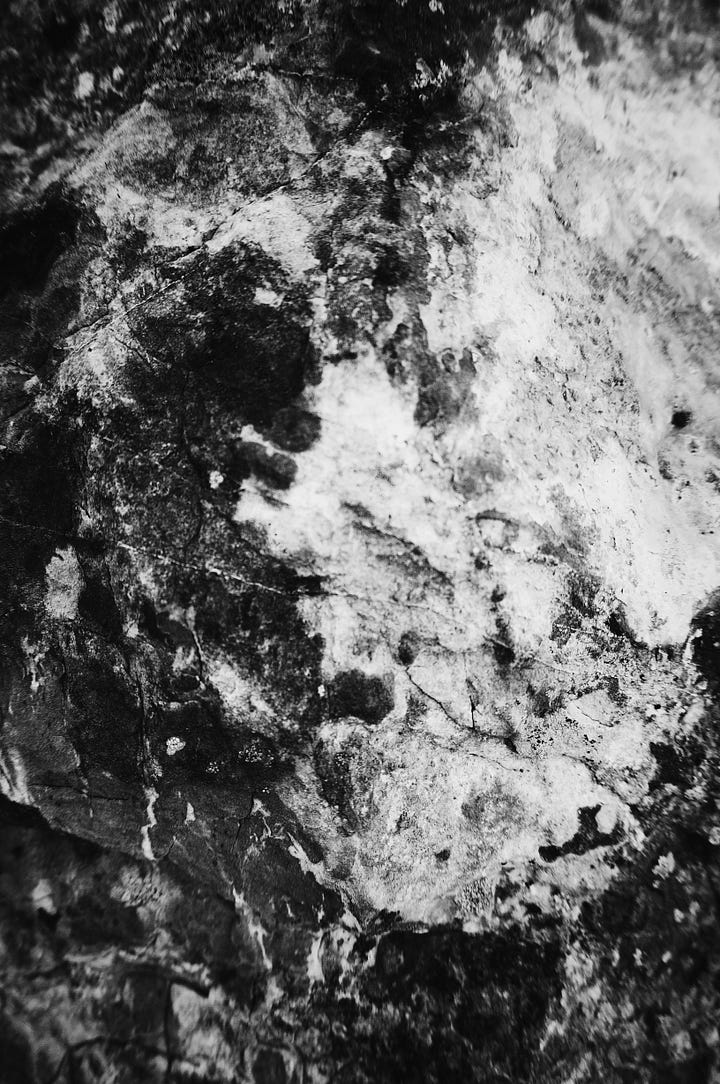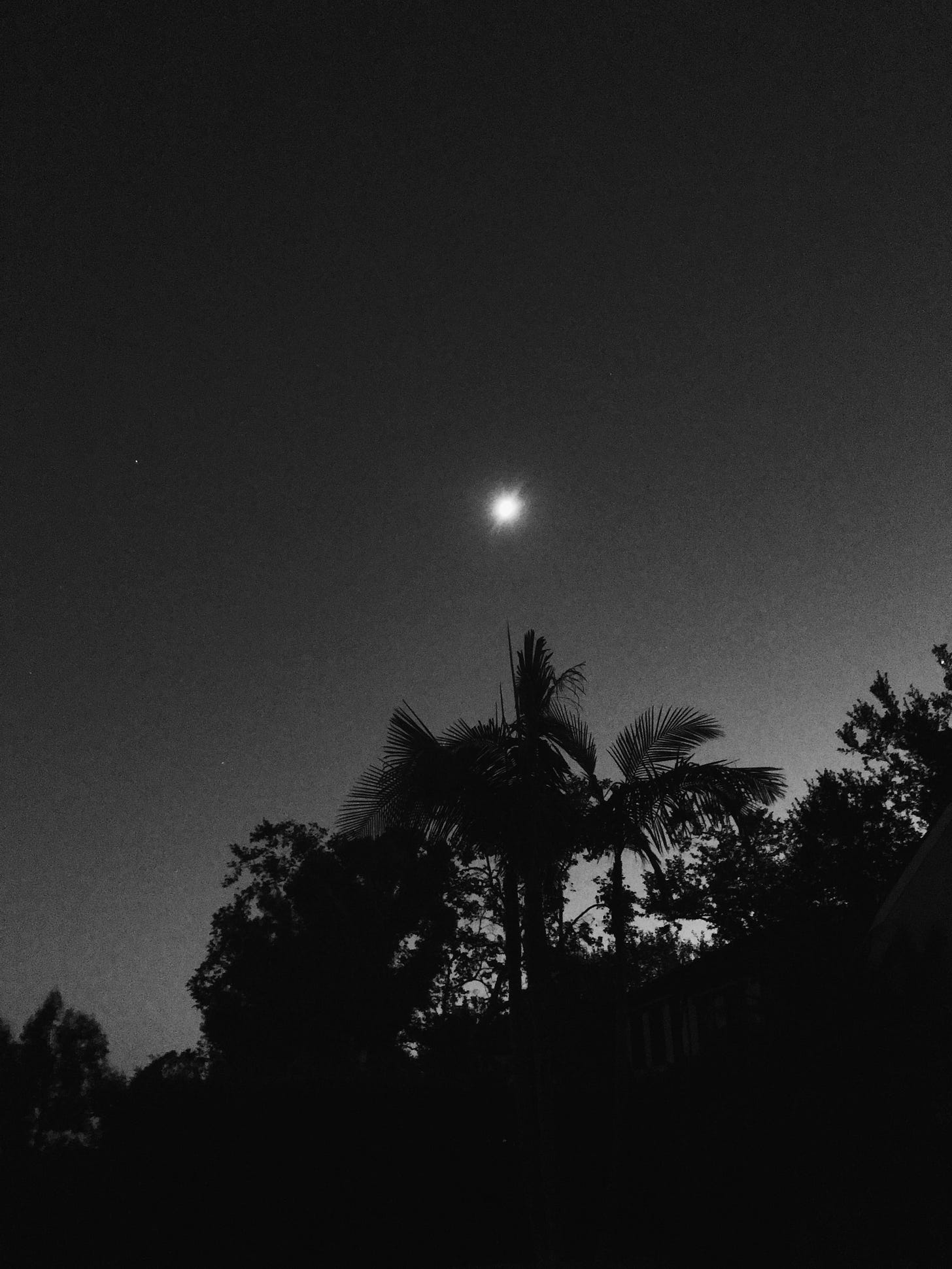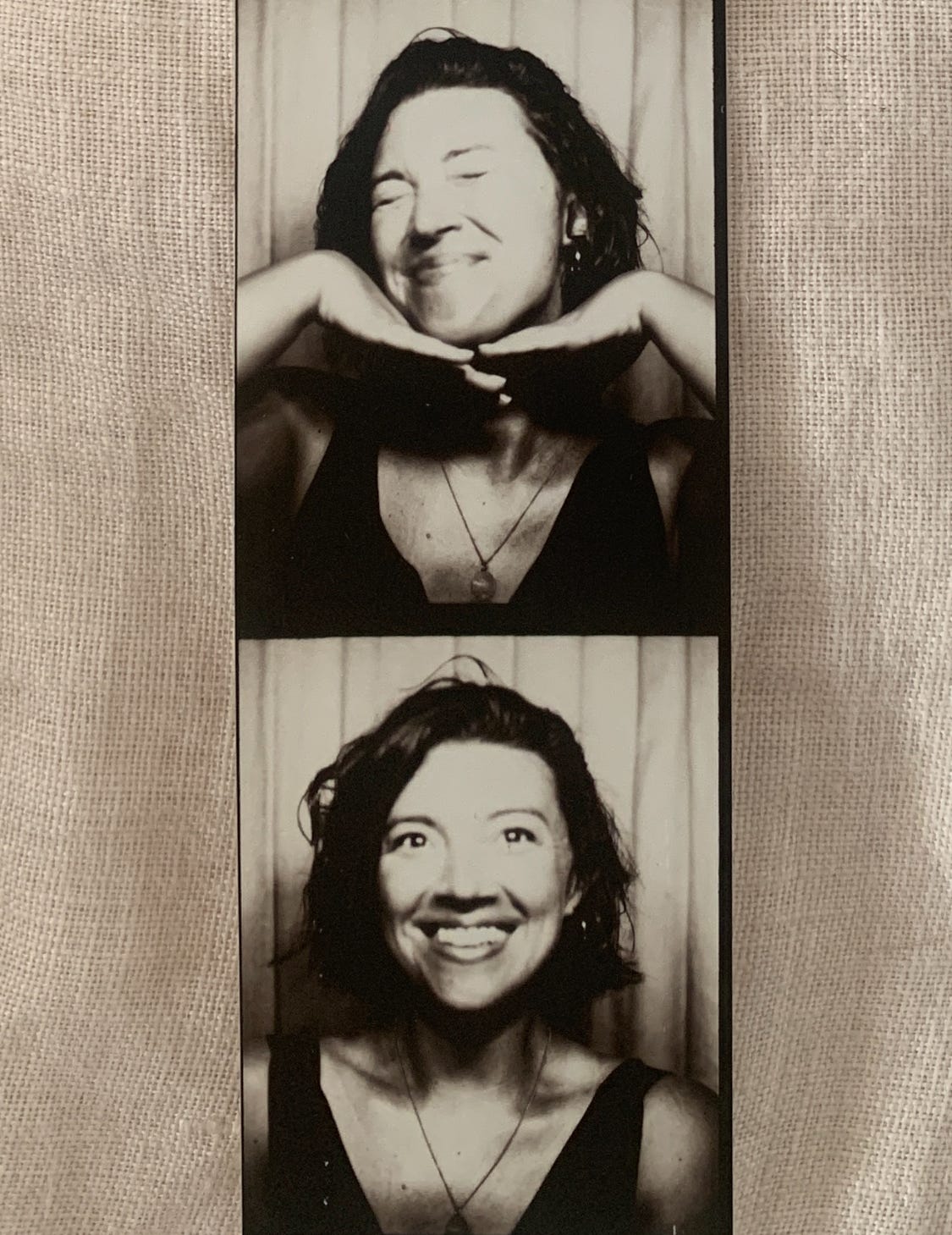June’s workshops in NYC are here; future classes will take place in Chicago. For paid subscribers, each June’s letters arrives with weekly, guided meditative writing sessions — a revisit to a class I designed on the nature of wonder, Cultivating Curiosity. Each short, simple practice arrives each week. Next week is the last in the series! For more, or to start a meditation or writing practice, strengthen your creative flow, or sustain an existing practice, schedule a 1:1 session. As always, listen to each week’s essay here, or pair your reflective practice with a journal from Odette Press.
“For me, as both a scientist and a humanist, the transcendent experience is the most powerful evidence we have for a spiritual world. By this I mean the immediate and vital personal experience of being connected to something larger than ourselves, to feeling some unseen order or truth in the world. The experience I had looking up at the stars off the coast of Maine was a transcendent experience.”
— Alan Lightman, Searching for Stars on an Island in Maine
Nighttime. Light flashes bright across the sky. A passageway in motion; a car in the point between two places. A road, wet with night, held by parenthesis of trees on either side, while eyes stretch into long stretches ahead of highways. Rain falls with night; heat is a thick wall covering. Mud is made, then whispers itself known into fragrant night alongside pine and oak leaves. Atmosphere thunders, claps, and sound shakes the windows. I wait, learning the rhythm of the storm: the sound of a single flash. Of near summer lightning. A moment sounds out, radiating.
The smell of fig leaves hits me in the morning as I swing open the doorway. Morning enters day; I enter into June’s atmosphere of humidity. Wooded and vegetal, sweet and near-coconut, the smell of figs’ leaves speaks of the heat; some encouragement of patience in the effort toward promises of fruit. Lush leaves with their thick milk stems rise up toward clouds, while clouds pass by in quiet. A humid exhale of fig encompasses morning, bringing presence to senses, bringing coherence to the moment along with daylight.
I wonder when the figs will ripen. How many cycles of days, or maybe months, of heat and time it will take, until the fruit grows around the city, to the sweet point where skin grows thick then softens. Now, the first small fruit: peaches, plums, figs, pears, all in small rounds, shining green and early, as if a constellation hidden among the city. Eyes up toward sky, sun, fruit, I watch and notice, note the cross streets and growth, eager as they ripen. Eyes tracing branches as I walk, I recall, remember, and imagine the days of each peach, pear, fig’s arrival: reaching up to pick from the ephemeral season, the gift of ready fruit. Take a fig and a knife and slice one in half, revealing lush red sweet on each half, then sit and taste and inhale astonished.
Astonishment. Driving, I look wide across the horizon. Humidity becomes the mind, and my thoughts become particles of atmosphere: they are mist, they are humid, existing slow at times, moving fluid as they become tendrils of smoke and wander. Two weeks of travel. My mind begins to blur, having slept between rooms and beds, crossing the artifice of state lines, crossing terrains of sleeping suburbs and tree-lined highways and ever the endless buzz of cities. Is that what we want, to some extent? To lose track of time, to lose a sense of stability, of knowing — dropping instead into wonder, into not-knowing, at least for some time? I drive through summer storms, sun at its peak, a sky deep in blue; a day flat with gray light. Given the chance to roam, I choose the scenic route. Nothing to effort, besides drive. There, eyes sharp and mind becomes humid, wandering.
“Curiosity, something we know most of all from childhood, is a forward-driving force that derives from the difference between what is known and not known,” writes Jenny O’Dell. “Even morbid curiosity assumes there is something you haven't seen that you'd like to see, creating a kind of pleasant sensation of unfinished-ness and something just around the corner.”
Looking to the lightning as heat moves through June skies, I watch the horizon. Curiosity is an ember of learning; wonder arises in making space for the unknown. Wonder is a conversation: a way of relating, and there are always two forces in some kind of dynamic — look to plates of food, faces, feelings, paintings, skylines for something that sparks you, as in that “object of astonishment” — as in the root of wonder, its etymology. Wonder requires us to transcend, to seek something beyond our comfort, something outside of ourselves. To ‘be puzzled, be curious about, entertain some doubt’ comprise the origins/roots of wonder. “Hence I wonder” then becomes “‘I should like to know.’”
What do you wonder, and when you wonder, how does it feel? Often, lately, we find ourselves in the comfort of form. We are too good, now, at knowing, often unfamiliar with fog and formlessness. We open our phones, and a map tells us in a constant pulse where we are; we can ask a question, and can immediately look for, seek, and find, an answer and reply. We are taught and sold the idea that knowing is king; that god is a dollar, and that well-being is a process bought as something ever sought and ever outside of ourselves, instead of looking wide-eyed at the miracle of particles, of plants and fruit growing, and the rhythms of sky in astonishment. But what of wonder, and turning within? What if the ingredient to transcendence is less knowing, and more being with?


In Buddhism, we learn to turn inward, studying ourselves with curiosity, while learning to expand our view, so as to investigate the nature of mind, one where the capacity of mind becomes one as infinite as sky, wide, with the capacity to hold all: sunlight, thunderclap, everything. To learn anything, we have to open, becoming new, dissolving our sense of knowing, and entering, then, into, a beginner’s mind.
But beginner’s mind is new mind, and to be new is to be tender in our unfolding. To be tender is to be vulnerable to something. To begin and be curious opens us up. Awe inspires us, then, leaving us with some feeling of transcendence— revival, as it often arises through the flow of the spontaneous — giving us back our capacity to be amused, aroused in inspiration, finding vastness in aliveness.
Curiosity is a light, or holds the light out for you to see: you tune your eyes into the dark, following breath after breath after step after step, until you no longer are hungering for the end point, but rather in continuity with the flow. You flow with the process of being with the dialogue of living. Breath follows breath; step follows step; and season follows season. You dive for depth, or expand out, or both, beginning to feel and sense the fullness of living and living in dimension. Curiosity is the guide, the pulse of star, the muse. Suddenly, she leaps out of corners, an urge forward, eyes bright with drive and delight, arriving you, in time, to some transcendent state: a glimpse, a moment where you are there, beyond yourself.
Transcendent states require that we suspend our sense of who we are: I move beyond I, and into something larger. Driving out of the city and re-entering the maze of metal, bridges, and fast paces, I notice the places where I tighten my grip, close my view, and the places where I remember to open. Opening is the language of breath, sky, wonder: I become particle, tuned to wonder, watching the changing season and sky. Nearby, whole bluestone cliffs show the distance between blue of sky and that which grows in the ground, while further, beyond rush hours and the overlap of bridges, are buildings and buildings, and each inch of the earth is covered in life, teeming.
Our inner guides and what we care about become the drives that bring us onward. They light the way for us, through flashes of insight, or steady hands holding lightning bug or lamp light. Why wonder? Why open to life, why sky mind? I remember and forget. I can’t tell you why I still have optimism or hope most days other than it is what I choose, and it is what nourishes my endurance. Wonder looks us into the eyes of those we love, in the trees steady and strong against the skyline, their branches growing fruit. Our survival has always included some kernel of hope and wonder, of trusting something wider and wilder than ourselves, looking larger, wider, vaster beyond the scope of our knowing. Turning toward some sky for navigation, for trusting ourselves to look to midnight and mediate, to navigate onward. To wonder is to sustain. Curiosity gives us a forwardness. A continuity.
Still, I look to the sky. If ever I lose wonder, and am swallowed up, lungs and eyes welled up in water, plumbing to the depths of despair, I look up. Look for something, anything that draws you out. “Despair compresses you into a small space, and a depression is literally a hollow in the ground. To dig deeper into the self, to go underground, is sometimes necessary, but so is the other route of getting out of yourself, into the larger world, into the openness in which you need not clutch your story and your troubles so tightly to your chest,” Solnit writes in Faraway Nearby. Looking to the sky, and feeling the places of steadiness with highway and ground, I recall the ways each teach how to trust something, anything. If not the road, then the ground beneath, and how without seeing, we feel the force of gravity. If not the weather, then the continuity of time, one that brings a clear day and moon in fullness eventually. Curiosity is an endeavor onward, into the days, and the dark, ripe of night.
Nourished by, Nourishing:
“Rest in the Sky of Natural Mind” over on Lion’s Roar, this study on the nature of transcendent states, and two weeks of travel and many miles covered in running, walking, talking, and drives. Reading Islands of Abandonment by Cal Flynn.
For Paid Subscribers:
Cultivating Curiosity, a guided meditation and writing class, arrives for you for the month of June in tandem with each of the weekly letters. Each video pairs mindfulness meditation with contemplative writing. Spark curiosity and wonder with each short, simple, practical session. Pair these with a journal and a favorite pen.






